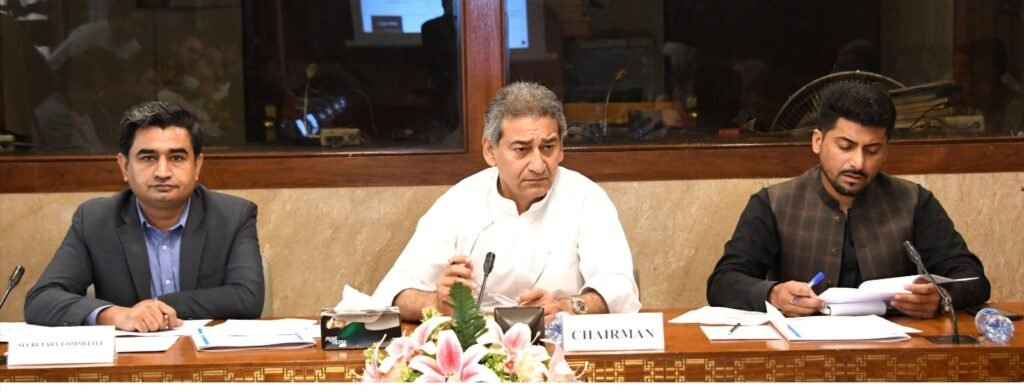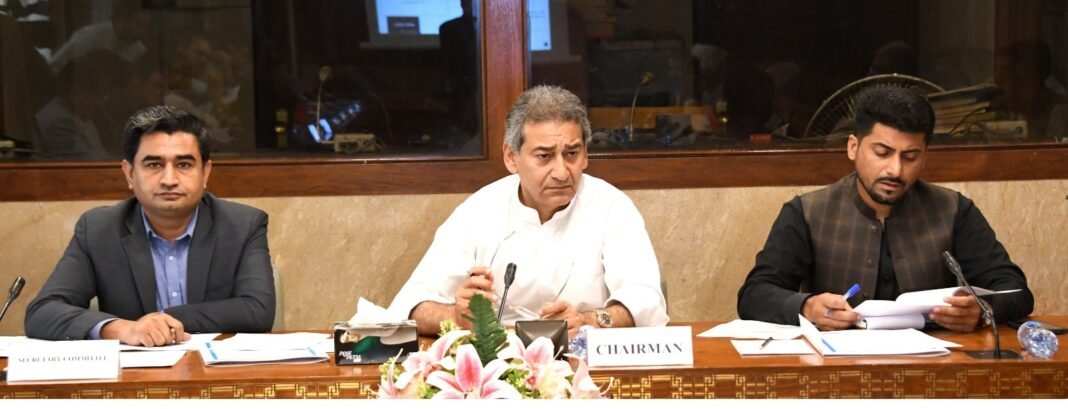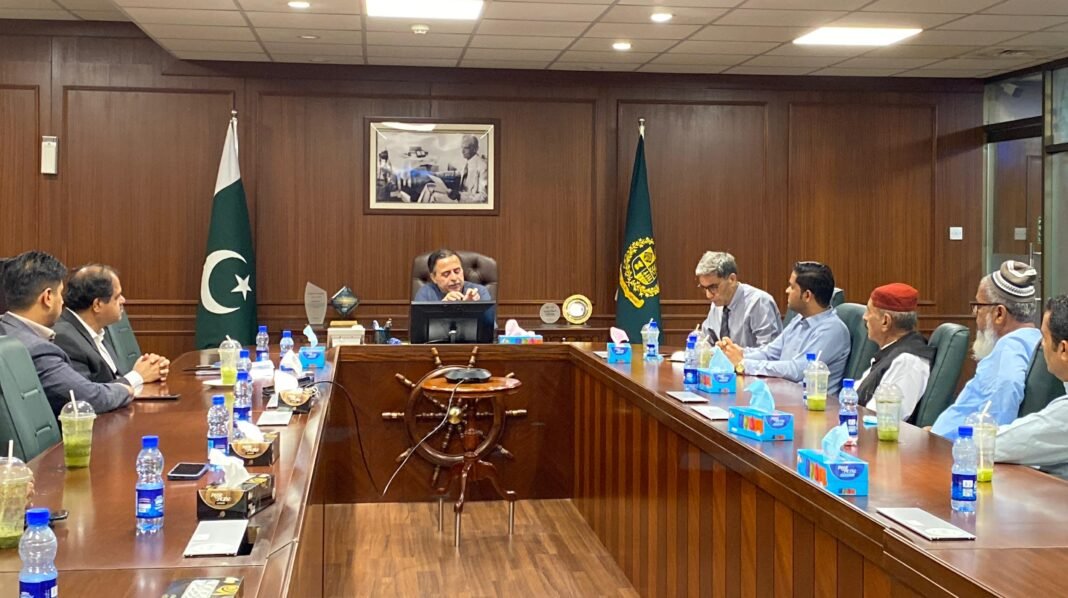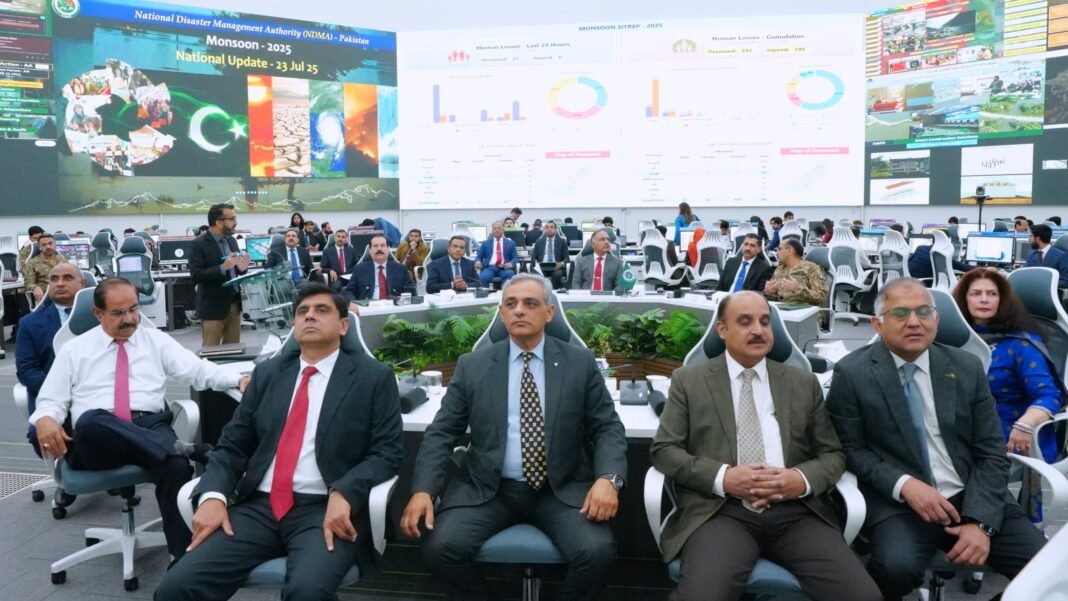
7TH MEETING OF THE STANDING COMMITTEE ON ECONOMIC AFFAIRS DIVISION
Islamabad : — A meeting of National Assembly Standing Committee on Economic Affairs Division was held under the Chairmanship of Muhammad Atif at Committee Room, Parliament House.
The power sector informed the committee that their current installed capacity is 39,952 MW that includes 46% from clean energy and 54% from fossil. The power sector informed that there is overreliance on fossil than clean energy.
The Committee thoroughly examined the proposed privatization of three power distribution companies – Islamabad Electric Supply Company (IESCO), Gujranwala Electric Power Company (GEPCO), and Faisalabad Electric Supply Company (FESCO) – raising serious objections to the current selection criteria. Members unanimously expressed concerns to the methodology that exclusively targets DISCOs with minimal transmission and distribution losses for privatization. The Committee emphasized that by limiting privatization to only the most efficient utilities, the government would be compelled to retain chronically underperforming DISCOs, thereby exacerbating existing operational challenges and making their eventual privatization virtually unattainable.
The Power Division presented a comprehensive overview of Pakistan’s current power generation capacity to the Standing Committee, reporting a total installed capacity of 39,952 MW. The energy mix analysis revealed a concerning imbalance, with fossil fuel-based generation accounting for 54% compared to just 46% from clean energy sources.
The Committee was informed that Pakistan’s power sector currently faces a significant surplus of approximately 7,000 to 8,000 MW in electricity generation capacity. Members expressed serious concern over the substantial financial burden imposed by capacity payments for this unused electricity, which continues to strain the national exchequer despite serving no practical purpose.
The committee members raised serious concerns regarding the inequitable distribution of development projects and budget allocations for Khyber Pakhtunkhwa (KP) in the proposed federal budget for 2025-26. The Committee noted with concern that while KP has a substantially larger population than Gilgit-Baltistan (GB), both regions have been allotted only two new projects each, reflecting an unjust disparity. Furthermore, the budgetary allocations for development projects across provinces revealed that Baluchistan receiving Rs. 209.6 billion, Punjab Rs. 76.6 billion, Sindh Rs. 145.9 billion, and KP Rs. 30.843 billion.
The Economic Affairs Division (EAD) informed the committee that it has filed appeals and interim relief applications, with hearings ongoing and the next scheduled for September 2025. Meanwhile, EAD has sought the Federal Cabinet’s in-principle approval for a new legislative framework, the “Foreign Contributions (NGOs and NPOs) Regulation Act, 2025,” to address the legal gaps.
The meeting was attended by MNA’s including Mr. Muhammad Atif, Mr. Shahid Usman, Mr. Muhammad Khan Daha, Begum Tehmina Daultana, Mr. Ammar Ahmad Khan Leghari, Ms. Zahra Wadood Fatemi, Dr. Mirza Ikhtiar Baig, Syeda Shehla Raza, Mr. Muhammad Jawed Hanif Khan, Ms. Shandana Gulzar Khan, Mr. Sadiq Iftikhar, Mr. Sher Ali Arbab and Mr. Nasim Ali Shah. The meeting was also attended by officials of Ministry of Economic Affairs and other officers concerned.
Sohail Majeed is a Special Correspondent at The Diplomatic Insight. He has twelve plus years of experience in journalism & reporting. He covers International Affairs, Diplomacy, UN, Sports, Climate Change, Economy, Technology, and Health.






![logo-1[1]](https://globalnewspakistan.com/wp-content/uploads/2025/01/logo-11-e1737618310315-300x187.png)